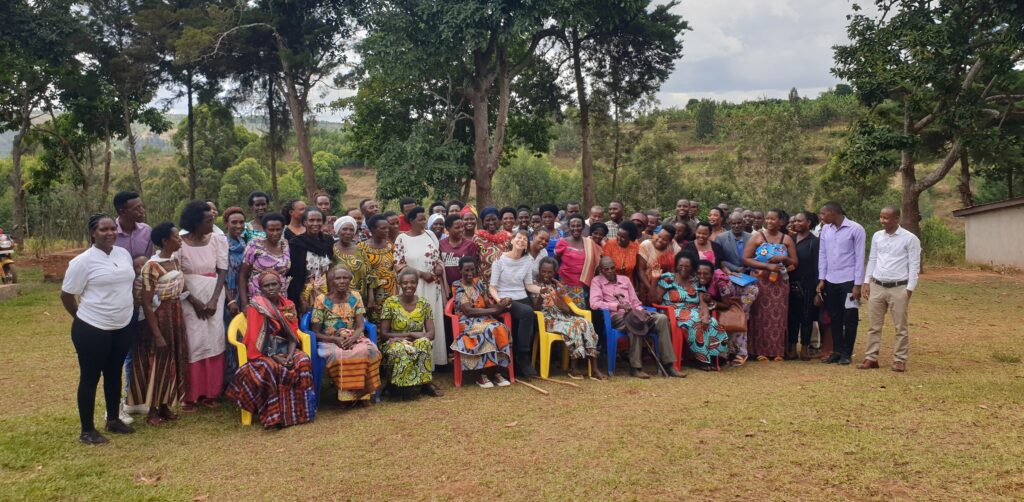This fragment of wisdom comes from Helen Keller, who had her share of challenges. Born in 1880 in Alabama, she was blind and deaf. Yet, she went to Harvard (in itself, an achievement for a woman at that time) and became a tireless campaigner for disability rights.
Keller’s words describe the vision guiding our long-time Rwandan partner SURF, the Survivors’ Fund. I witnessed SURF’s work on my first visit to Rwanda in 2004, ten years after the genocide. SURF stood out as a genuinely local charity, founded and run by Rwandans. Unlike many big international aid groups, they were not imposing their model of development on people. Instead, they gave a helping hand to groups of survivors who understood what needed to be done to rebuild their battered country. For instance, SURF built 400 homes for groups of orphans who had been living on the streets. Rather than constructing orphanages, they trusted these child-headed households to be responsible, and their trust paid off: there are now dozens of these self-guided communities flourishing across Rwanda.
Our Local Partner, The Survivors Fund (SURF)
We have been working with SURF ever since I first saw how their groups of genocide widows and orphans were charting their future, despite overwhelming challenges. The terms “empowerment” and “capacity-building” are liberally thrown around the “aid sector,” but in this case, it is genuine and profound. More than 15,000 genocide widows have been given in-depth training in accessing finance and starting small business ventures, in addition to legal support. More than 5,000 student survivors have accessed entrepreneurship and work readiness training resulting in the establishment of over 1,500 new businesses. SURF has also helped young genocide survivors get legal title to their murdered parents’ estates. More than 1,000 survivors have been supported through university and many now hold prominent positions in Rwanda.

Yet, our Rwandan friends guiding SURF always knew that survivors needed more than homes and money-making ventures to truly overcome the unimaginably traumatic events in their past. For this reason, Network for Africa’s volunteer psychotherapists have trained SURF’s peer support counsellors, giving them the tools to offer regular group and individual counselling sessions to thousands of genocide survivors over the years. Each month, all across Rwanda, dozens of groups of survivors gather to discuss the issues they face, giving mutual support and charting a path forward.
As J K Rowling wrote:
Happiness can be found even in the darkest of times, if only one remembers to turn on the light.
The Big Give 2024
If you live in the UK, please donate to the Big Give campaign starting on December 3rd. It runs for seven days. However, the nearer to December 3rd you give, the more likely it is that there will still be money in the pot to double your gift. Please visit our Big Give webpage (NB the ‘Donate’ button will only appear on our campaign page once the campaign starts on Tuesday 3rd December).
For those kind friends of Network for Africa beyond the UK, thank you for your support and please continue to support our work through Network for Africa USA. Thank you.